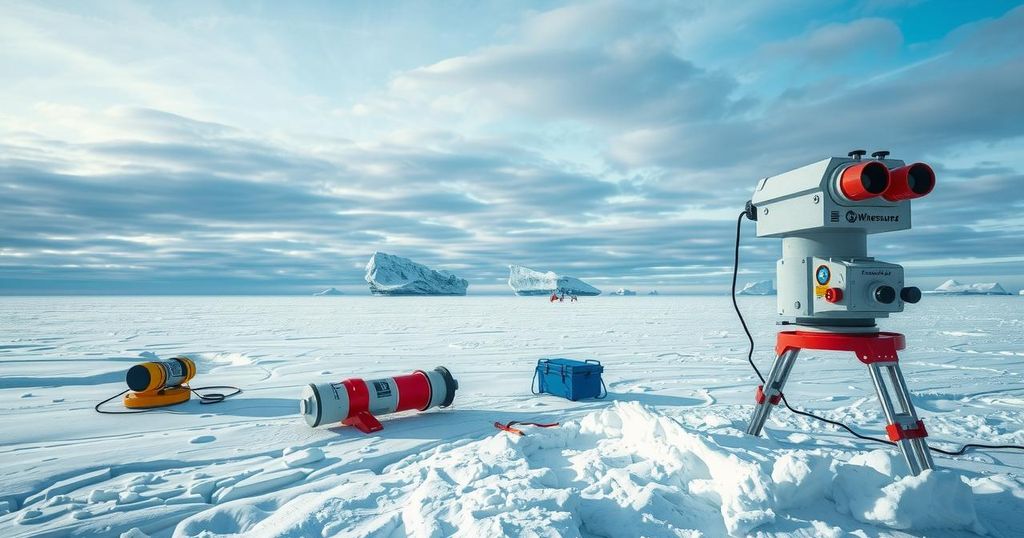Understanding Antarctic Research: Significance and Challenges

This article discusses Antarctic research focusing on climate change and its importance, outlining the challenges faced by scientists, significant discoveries made, and how these findings relate to global environmental changes. It highlights South Africa’s involvement and the critical collaborative efforts among about 30 countries conducting research in the region.
In March 2025, controversy arose at South Africa’s Sanae IV base in Antarctica when a researcher reported violent behavior from a teammate. To shed light on Antarctic research, The Conversation Africa interviewed geomorphologist David William Hedding, discussing the scientific endeavors conducted on the continent, the challenging environment, and their importance.
Antarctic research primarily addresses climate change, acting as a vital indicator of climatic shifts due to its unique and fragile ecosystem. This extreme climate is particularly sensitive to global changes, allowing scientists to observe fundamental processes in nature. Additionally, its geographic isolation makes it a suitable site for studying phenomena like space weather, which affects communication technology and human health.
Around 30 countries maintain research stations in Antarctica, facilitating collaboration due to logistical challenges in isolated areas. The South African base, SANAE IV, typically accommodates 10-12 researchers and personnel. Situated in Western Dronning Maud Land, the remote station is approximately 220km inland from the ice shelf. Researchers spend about 15 months at the base, enduring the harsh winter months without significant daylight.
Key discoveries from Antarctic research include the 1985 identification of the ozone hole by the British Antarctic Survey, which spurred the Montreal Protocol to phase out harmful chlorofluorocarbons. Another significant finding involves using ice cores to analyze past climates, revealing atmospheric conditions over the past 1.2 million years, which is essential for understanding future climate responses amidst ongoing human-induced changes.
Conducting research in Antarctica poses significant challenges due to the remote locations, extreme cold, and perpetually varying daylight hours. Accessing many study sites is difficult, demanding extensive logistical planning and collaboration. Geologists from the University of Johannesburg, for example, often traverse long distances via snowmobiles to gather samples while managing resource constraints in harsh conditions.
Scientific work in Antarctica is crucial because it influences global systems. The anticipated melting of land-based ice in Antarctica threatens to raise sea levels and disrupt oceanic currents, which are integral to global ecology. Understanding these relationships is vital for societies to prepare for and adapt to the impacts of climate change, particularly concerning sea-level rise and its consequences.
Research in Antarctica plays a pivotal role in understanding climate change and global systems. Despite facing extreme conditions, scientists make critical discoveries, including insights into the ozone layer and past climate data. The international collaboration among numerous countries at various research stations underscores the importance of Antarctic research for global ecological stability and resilience against climate-related impacts.
Original Source: allafrica.com







